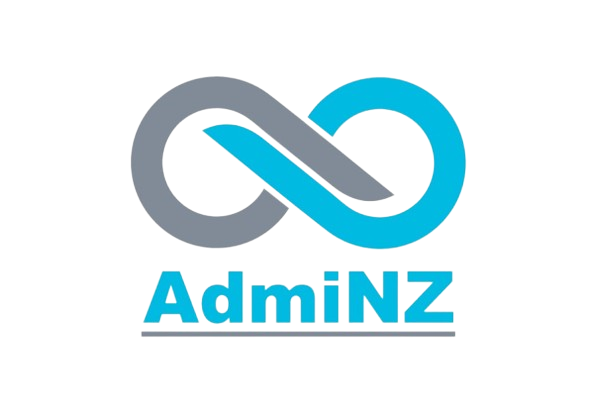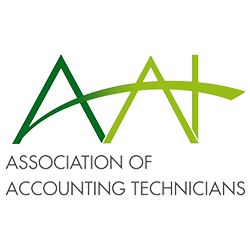How to Write a Killer CV [+ Free Resume Template]

Looking to enter the job market, change jobs or start a new career? Stand out to hiring managers with this guide on crafting a perfect New Zealand-style CV.
A CV, or curriculum vitae, provides a summary of your skills and experience to employers, and are submitted as part of the job application process. When it comes to crafting a strong CV, there are a few simple steps you need to bear in mind.
1. Stick to a simple, clean layout
While you may feel tempted to jazz up your CV, it’s important to take a more minimalistic route. CVs with too many graphics or columns probably won’t get through the Applicant Tracking System that is used to process your application form.
Instead, keep things simple by using a clean layout and bullet points to highlight the most important points. Remember that recruiters spend an average of just 6 seconds reviewing a resume, meaning you have to sell yourself effectively!
2. Put your name and contact details at the top
Because the most important information should be easy to glean at a glance, make sure to use a slightly larger font for your name at the top. Also provide your phone number, email address and location at the top so potential employers can quickly note if you are based in Auckland, Christchurch, Wellington or another area.
3. Include a brief personal statement
Your personal statement allows you to tailor your CV to the specific role you are applying for. Simply paint a picture of who you are, why you are a good fit for the role and what your career aspirations are. Make sure to keep this to just three or four sentences.
4. Highlight your key skills
Your core capabilities should also be easily identifiable in a few bullet points. Touch on points that are mentioned in the job description so that your compatibility to the role is made abundantly clear.
5. Add a section for your education and training
The name of your course and institution and the years you were undertaking your studies should also be included. If you’re still studying, just make note of this on the CV too. If you have several qualifications, list your most recent one first.
6. Detail your professional experience
Include all relevant roles you’ve done, with the most recent role being first. The position should be mentioned first, then the organisation and the time you worked there. Write a brief summary of what the position entailed, your responsibilities and any achievements worth highlighting. If you can give a clear example of the results you delivered, definitely make sure to highlight this.
If you can avoid it, don’t include unrelated casual jobs that you may have had. If you don’t have much work experience, consider doing a summer internship or identifying any transferable skills gained through volunteering or extracurricular experiences.
7. Mention any professional memberships and affiliations
If you’re a member of a professional body or even a charity, it’s well worth mentioning on your CV. This gives a little insight into your life outside of work, and any transferable skills you could bring to the role.
8. Don’t forget your references
One of the most important details you should have on your CV is a few personal or professional references. Most New Zealand employers will want to contact two or three references. Make sure to ask these references for permission, include up-to-date contact details and maybe even provide them with a copy of your CV so that they have some good talking points.
9. Some don’ts
Contrary to what some people might think, your CV doesn’t need to include your birth year or a photo of yourself. After all, employers shouldn’t be considering your appearance or age when hiring – it should all be about your abilities!
To make writing a CV easier than ever, make sure to use our CV template. Also, put in a little bit of extra effort by writing a cover letter that is tailored to each job application.
Browse Results
Diploma in Management & Team Leadership
Show you’re management material. Get an accredited Diploma in Management to prove your competency! While many managers are promoted because of their excellent personal performance, this change in role requires the development of new skills to ach…

Administration Pathway Program – Business Administration
Give your admin career a real boost. It’s one of the most highly awarded Administration courses that you could take. This program is for those working in or seeking a Business Administration role. You’ll complete the Certificate in Business Administrat…


Diploma in Child & Youth Counselling
How to change people’s lives for the better. This is a course where you can make a world of difference for children and young people. It’s a fascinating and highly detailed course where you’ll learn about theories of childhood development that include…

Certificate in Accounting
This is a course that ticks all the boxes. The Career Academy Certificate in Accounting will provide you with all the necessary skills to work in an accounting environment. There’s no prior experience needed to do the course. And once you finish, you’l…

Accounting Pathway Program
Become a Qualified Accounting Technician and member of AAT! Fast track your accounting career with The Career Academy. This Program is unique to The Career Academy and specifically designed for those working or who have worked in an entry through to in…


Psychology & Counselling Diploma
Understand the human mind and the counselling process with this internationally recognised qualification. You’ll learn the theory behind the skills and techniques used to successfully help people work through their problems and issues with counselling….

Certificate in Bookkeeping
Learn to balance the books with our accredited course. You’ll be able to prepare GST returns, liaise with the Inland Revenue on behalf of a taxpayer and keep business accounts, as well as learning to analyse and interpret a profit and loss statem…


Certificate in Business Administration
Get that job or promotion with this certificate which is supported by the AdmiNZ. This online course will help you gain practical skills to prepare you for an administration role. The course will give you the immediate knowledge to work confidently in…

Accounts Administration & Payroll Certificate plus Xero and MYOB
Up your practical knowledge and stand out from the crowd with our intermediate online course. You’ll gain skills in accounting, GST, Xero, payroll, Microsoft Excel and much more….


Accounting Diploma
Once you qualify, your job prospects will soar. If you’re eager to enhance your accounting skills, and pursue a career in accounting, finance or business, then this course is a must. It’s an advanced qualification that builds on the practical accountin…


Import and Export Advanced Course
The International Trade (Import – Export) course gives you skills that you can put to immediate use. Whether you are expanding your business into the international market, starting a business or simply looking at working for an international trade comp…

Life Coaching Course
This course provides an opportunity to interact with and learn from very successful, highly qualified and experienced professionals. It also allows you to enter a respected and fast growing professions dedicated to making difference in peoples’ lives….

Catering and Cooking Course
Become a caterer and learn essential cooking skills. This course provides an opportunity to interact with and learn from very successful, highly qualified and experienced professionals and master chefs. It also allows you to enter a profession which wi…

Nursing Assistant Course
The field of Nursing & Patient Care Assisting is a rewarding career for those who wish to work in a profession that gives back to those who need it most….

Dental Assistant Course
Become a Dental Assistant. The course provides an opportunity to interact with and learn from very successful, highly qualified and experienced professionals. It also assists you in pursuing a stable and secure career as a dental assistant….

TESOL Course
There are certain skills you need to become a successful “Teacher of English to Speakers of Other Languages” (TESOL). Also commonly known by the acronym’s TEFL and TESL which are used interchangeably. The ICI TESOL Program helps you learn the required…

Paralegal Secretarial Advanced Course
The ICI paralegal course has been designed in conjunction with government and industry representatives and helps you learn the skills you need to succeed within the field of law quickly and conveniently. Our program is designed for those who seek to en…

Mediation Course
The mediation and conflict resolution profession is an incredibly rewarding and fulfilling profession….

Forensics Course
The field of forensics science is a fascinating area to study….

Hospitality Management Advanced Course
The ICI hospitality and hotel program has been designed in conjunction with industry leaders and helps you learn the skills you need to succeed in within the industry quickly and conveniently….

